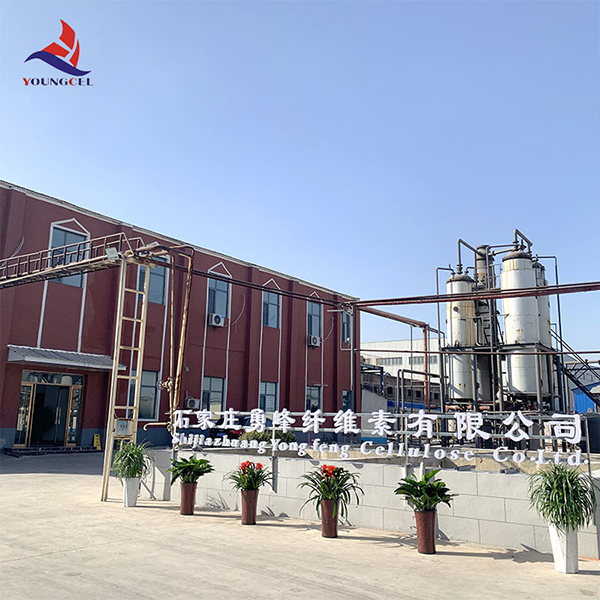The Global Landscape of Cellulose Manufacturers
Cellulose, a natural polymer derived from the cell walls of plants, has found a myriad of applications across various industries. From food additives to pharmaceuticals and textiles, the demand for cellulose has surged in recent years, driving growth in the manufacturing sector. This article explores the global landscape of cellulose manufacturers, highlighting key players, the manufacturing processes, and future trends in this essential industry.
Understanding Cellulose
Cellulose is comprised of long chains of glucose molecules and serves as the primary structural component in the cell walls of plants. This biopolymer is not only abundant but also renewable, making it an environmentally friendly option for various applications. Cellulose can be transformed into different derivatives, such as microcrystalline cellulose, carboxymethyl cellulose, and cellulose acetate, each serving distinct purposes. For instance, microcrystalline cellulose is commonly used as an excipient in pharmaceuticals, while cellulose acetate is widely utilized in the production of films and fibers.
Key Players in the Industry
The cellulose manufacturing sector is populated by numerous companies, ranging from large multinational corporations to specialized small and medium enterprises. Key players include
1. Viscose Fiber Producers Companies like Lenzing AG and Aditya Birla Group are leading producers of viscose, a fiber derived from regenerated cellulose. These companies have invested heavily in sustainable practices, aiming to minimize environmental impact while meeting global demand for sustainable textiles.
2. Chemical Producers Companies such as Dow Chemical and DuPont are involved in producing cellulose derivatives for various industrial applications. Their innovations in cellulose chemistry contribute significantly to the development of high-performance materials.
3. Pharmaceuticals Leading players in the pharmaceutical sector include FMC Corporation and Ashland Global Holdings, which manufacture cellulose-based excipients that are critical for drug formulation.
4. Food Industry Companies like Cargill and Ingredion produce cellulose additives used in food products to enhance texture, stability, and fiber content.
Manufacturing Processes
cellulose manufacturers

The production of cellulose typically involves several steps
1. Harvesting Raw materials, such as wood pulp, cotton, or agricultural residues, are harvested. The source of cellulose can significantly influence the properties of the final product.
2. Pulping The raw materials undergo a pulping process, where lignin (the component that binds cellulose fibers together) is removed. This step can be achieved through mechanical, chemical, or semi-chemical processes.
3. Bleaching To achieve the desired whiteness and purity, bleached pulp is often treated with chemicals.
4. Drying and Milling The cellulose is dried and milled into the desired particle size for specific applications.
5. Modification For cellulose derivatives, further chemical modifications are performed to tailor the properties of cellulose for specific uses.
Future Trends
As the world faces increasing environmental challenges, cellulose manufacturers are exploring sustainable sourcing and production methods. Innovations in bioengineering and biotechnology are being leveraged to enhance cellulose production efficiency and reduce waste. Moreover, the push for biodegradable materials is prompting companies to invest in research and development of cellulose-based alternatives to plastics.
Another critical trend is the increasing focus on circular economy principles, where cellulose waste from various industries is repurposed or recycled, contributing to the sustainability goals of manufacturers.
Conclusion
The cellulose manufacturing industry is at a pivotal point, characterized by both challenges and opportunities. With the growing emphasis on sustainability, manufacturers are adapting to meet new regulatory standards and consumer expectations. As technology evolves, cellulose will continue to play a crucial role in various sectors, paving the way for innovative applications that benefit both businesses and the environment.
-
Premium Detergent Grade HPMC Hydroxypropyl Methylcellulose: Superior Thickening & StabilityNewsAug.31,2025
-
HEC 100000 Hydroxyethylcellulose for Paint | Superior ThickeningNewsAug.30,2025
-
Wall Putty Rdp Powder Packaging DesignNewsAug.29,2025
-
Introduction to Hpmc Hydroxypropyl Methyl CellulosNewsAug.29,2025
-
Hpmc Industri Grade IntegrationNewsAug.29,2025
-
How to Choose the Right Construction AdhesiveNewsAug.29,2025




